Marina Sentis Vila

Laurence Cousseau
Charlène Gemard
Lucy Mitchell
Cesare Pacioni
Birgit Szabo
Bram Vanden Broecke

Camille Lemonnier
Principal investigators and guest professor(s)
Frederick Verbruggen
Luc Lens
An Martel
Diederik Strubbe
Post-doctoral researchers
Marina Sentis Vila

Laurence Cousseau
Charlène Gemard
Lucy Mitchell
Cesare Pacioni
Birgit Szabo
Bram Vanden Broecke

Camille Lemonnier
PhD students
Reinoud Allaert
Anneleen Dewulf
Tine Uytterschaut
Clara García i Co
Sophia Knoch
Mélibée Morel
Ran Xu
Wouter Courtens
Alix Kristiansen
Kathryn Willcox
Jolien Van Malderen
Wen Zhang
Gladys N. Kung'u

Frouke De Witte

Caoimhe Abdul-Wahab

Melanie Kaluppa

Victor Renaud
Support Staff
Nathan Audenaert

Angelica Alcantara
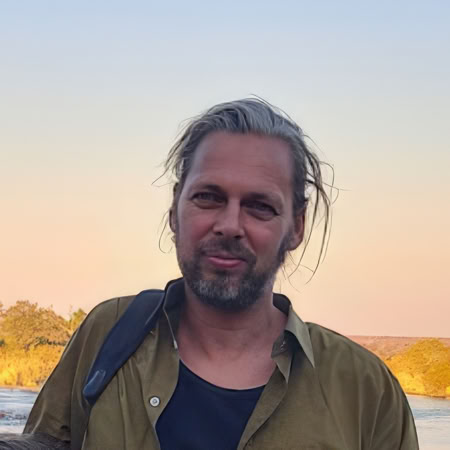
Hans Matheve

Viki Vandomme

Pieter Vantieghem
Recent alumni
Simon Braem, (visiting) post-doc (2023 –2025)
Bram Catfolis, PhD student (2021-2025)
Rory Counilh, PhD student (2021-2025)
Thomas Cansse, PhD student (2021-2024)
Gelaye Duguma, Phd student (2018-2024)
Alizée Vernouillet, post-doc (2021 – 2024)
Camille Troisi, post-doc (2021 – 2024)
Collaborators
Our centre is also embedded in local, national and international collaborative networks.
Examples include:
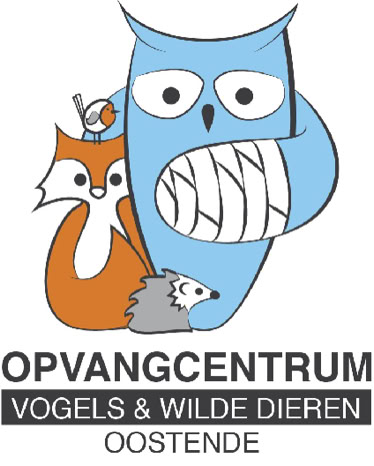
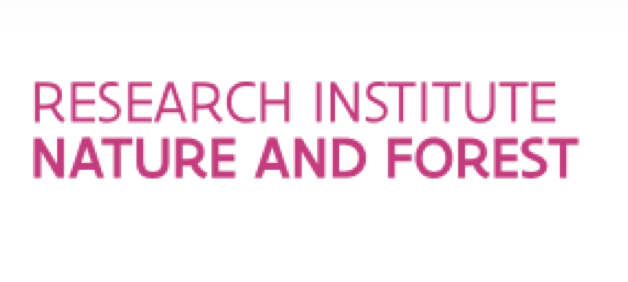
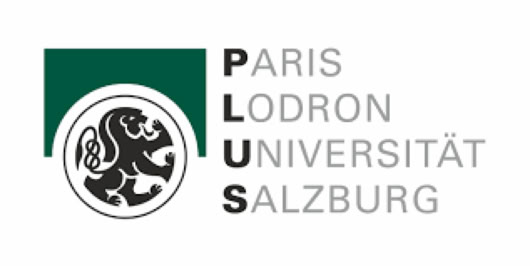



Click here for image credits
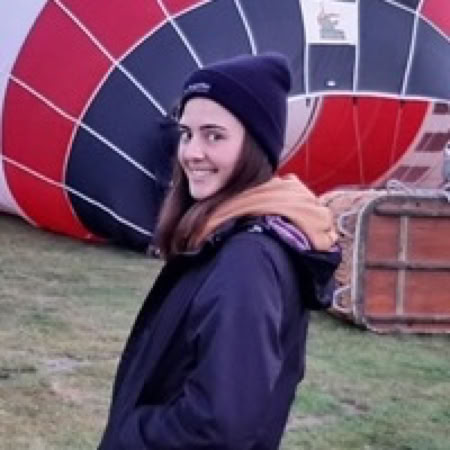
My research examines how cognition, personality, and early-life experiences shape movement behaviour in reintroduced vultures. By comparing movement behaviour between wild-born and captive-raised individuals and linking it to cognitive abilities and personality traits, I aim to identify behavioural profiles that predict reintroduction success. These insights will support the development of pre-release screening and training protocols, ultimately helping conservation managers improve reintroduction strategies.

Lorem ipsum dolor sit amet, consectetur adipiscing elit. Aliquam tincidunt lorem enim, eget fringilla turpis congue vitae. Phasellus aliquam nisi ut lorem vestibulum eleifend. Nulla ut arcu non nisi congue venenatis vitae ut ante. Nam iaculis sem nec ultrices dapibus. Phasellus eu ultrices turpis. Vivamus non mollis lacus, non ullamcorper nisl. Pellentesque habitant morbi tristique senectus et netus et malesuada fames ac turpis egestas. Phasellus sit amet scelerisque ipsum. Morbi nulla dolor, adipiscing non convallis rhoncus, ornare sed risus.
Sed adipiscing eget nibh at convallis. Curabitur eu gravida mauris, sit amet dictum
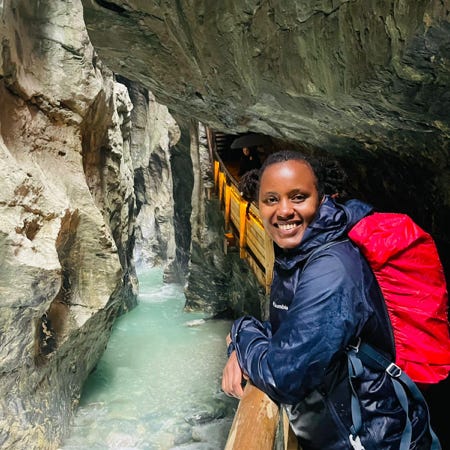
Land use change operate as the main threat to forested ecosystem resulting to loss of species dependent on them. Continued conversion of forests to other uses leads to forest fragmentation which decreases forest size, increases edge effects and forest isolation, all of which negatively impact forest quality and ultimately the persistence of forest-specialized taxa. The negative impacts of land use change on remaining primary forests are further magnified by human use of the forests. Our understanding of how species perceive, cope with, and respond to changes in forest quality is still limited. One of the challenges is that processes that propagate changes in forest quality may alter several aspects e.g., vegetation structure, availability of food, microclimate, and predation pressure. Crucially, the quality of the forest may determine the movement behaviour of animals due to the variation of essential resources such as food, breeding sites and refuges from predators. Again, how far animals move in search of these basic needs may consequently influence their physiology and fitness (that is, body condition and survival of offsprings and parents), but empirical evidence of these effects is still very poor.
My dissertation project aims to characterize the habitat quality of the forest fragments of the Taita Hills, a biodiversity hotspot in the Southeast of Kenya, where forest loss and fragmentation is very recent and human use of the remaining indigenous forest is ongoing. I will subsequently look at how fine scale changes in forest quality influence movement behaviour and fitness (reproductive success and body condition) of the Placid greenbul (Phyllastrephus placidus), a social-living and cooperative-breeding forest passerine. My PhD is part of the Placid greenbul Project, which is a long-term initiative of the ECoBird, Ghent University and the Department of Environment and Biodiversity, University of Salzburg, Austria.
Find me here as well: https://www.plus.ac.at?page_id=14012

I did my master's research in China. My research objective was the newly colonized azure-winged magpie (Cyanopica cyanus) population on the Qinghai-Tibet Plateau. Related to the azure-winged magpies' colonization behaviour following sea buckthorn in Luqu Country, the study analysed the temporal and spatial variation of azure-winged magpies' reproductive and parental care behaviour in the past ten years.
About my PhD research, I want to unravel the complex interplay between environmental change and physiological responses in a tropical forest-dependent bird species. Biophysical models link behavioural, morphological and physiological traits with spatial environmental data to determine species' energy requirements. I will accurately assess and predict climate change risks for tropical bird species in fragmented forest habitats by this method.
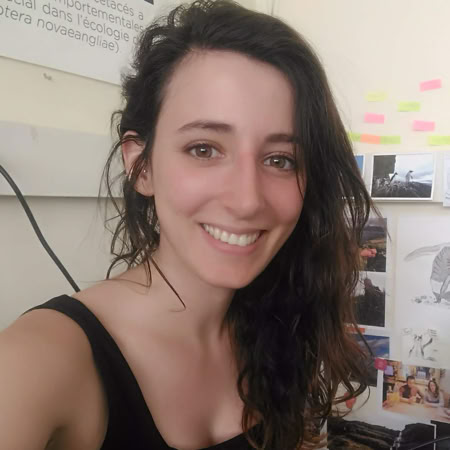
I am a behavioural ecologist with a particular research interest in the impact of anthropogenic activities on different facets of avian behaviour, at the interface of cognition, spatial ecology and conservation. I obtained my PhD at the University of Montpellier (France) in 2020, focusing on the determinisms and implications of male calls for sexual selection in burrowing seabirds. I then moved from basic to applied research and from the individual to the community level during my first postdoctoral position at the CEFE (Centre of Evolutionary and Functional Ecology, Montpellier, France), investigating the causes of bird mortality in wind energy facilities using remote video tracking systems (MAPE research programme). My current postdoctoral position at ECoBird aims to assess how neurotoxins, especially heavy metals, affect neurocognitive mechanisms and related behaviours in the wild, with a focus on the pre- and post-natal environment (e.g. effects of social interactions, maternal diet).
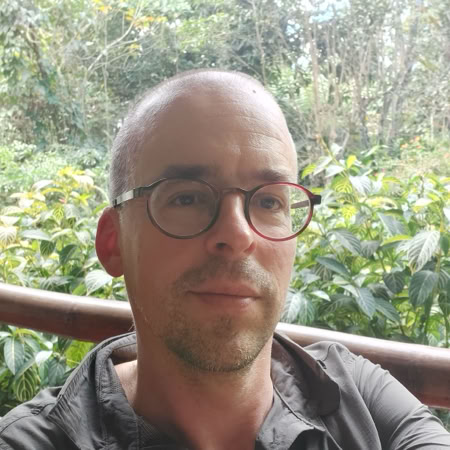
For the past 20 years, I have worked as a marine ornithologist at the Research Institute for Nature and Forest, focusing on Sandwich Terns in Belgium and the Netherlands. Initially, my PhD aimed to synthesize the extensive data we had collected on adult and chick diets, their role as indicators of chick body condition and forage fish availability, and their relationship with climate change. However, the outbreak of avian influenza in 2022, which devastated Sandwich Tern breeding colonies across Europe, added a new dimension to the research: assessing its impact on population size and dynamics. Ultimately, my PhD will likely serve as a comprehensive study of two of the most significant threats facing Sandwich Terns and many other European seabird species.
See also my INBO webpage or https://www.researchgate.net/profile/Wouter-Courtens
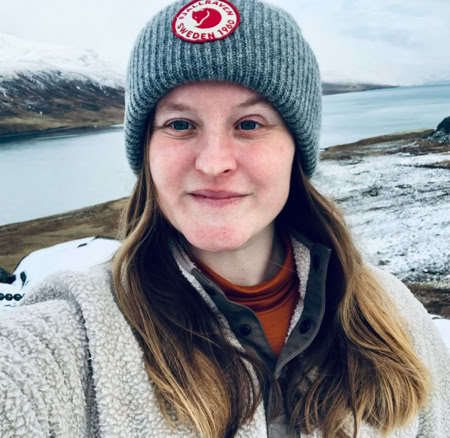
In my PhD, I am focusing on understanding individual differences in behavioural and physiological stress responses to unexpected challenges and environmental obstacles in juvenile herring gulls. My research also explores how the physical early life environment - particularly through maternal provisioning - shapes the development of these traits and the potential fitness consequences associated with them.

I’m a postdoc at the ECoBird lab with a great interest in behavioural ecology, evolution and cognition. My research focuses on observing and measuring animal behaviour in fine detail, while also considering the unique traits of individual species and their variations. I enjoy diving into the complexities of animal cognition (including humans), uncovering the subtle patterns that help us understand how they interact with their environment.
Expertise and interests: learning evolution, ecotypic differentiation, movement ecology, animal consciousness, cognition in primates, insects (butterflies) and birds (vultures, gulls, chickens)
Researchgate: https://www.researchgate.net/profile/Simon-Braem

I'm a postdoctoral researcher at the University of Ghent, funded by the FWO. My work focuses on uncovering the complexities of disease dynamics in wildlife populations, particularly pest species, by examining how individual differences among hosts—such as personality traits and positions within social or transmission networks—affect their infection risk. My PhD research focused on rodents (more specifically the multimammate mice, Mastomys natalensis in Tanzania and the Morogoro virus), but I’ve since shifted my focus to feral pigeons, sometimes referred to as "rats with wings," as they offer a unique window into disease spread within urban environments. Using an integrative approach, I explore how factors like host movement, social behaviours, immunity, and environmental influences—such as urbanization, habitat fragmentation, and pollution—shape infection patterns. My goal is to develop a deeper understanding of disease ecology within urbanized spaces.

My main research interest is related to seabirds, and especially towards their movement ecology and the aspects affecting this. My preferred method of studying this, and improving our understanding of their at-sea foraging behaviour, is by using different combinations of bird-borne biologging devices. Although I have worked in several locations during my scientific career, the bulk of my research has taken place on offshore islands in South-East Australia.
During my PhD, which was a collaboration between Deakin University and Ghent university, I investigated the foraging ecology of Black-faced cormorants (Phalacrocorax fuscescens) breeding on Notch Island, Victoria. Specifically, I investigated the diving behaviour, spatial distribution, habitat use and diet of this species during the breeding season, and the non-breeding period. In order to investigate these aspects of black-faced cormorant foraging behaviour, I used a combination of biologging devices (time-depth recorders and GPS loggers), prey regurgitates and stable isotope analysis. The knowledge collected during my PhD has contributed to a better understanding of this poorly studied species.
Google Scholar: https://scholar.google.com/citations?user=b1mjOUAAAAAJ&hl=nl

My PhD aims to study the ecology of the endemic Falkland Steamer Duck (Tachyeres brachypterus). The approach combines mouvement ecology, trophic ecology, breeding phenology and modelling to gain a better understanding of this understudied species. In the context of climate change, the obtained knowledge will be key to better understand the species status and how resilient this coastal duck might be.
This PhD is a cotutelle between Ghent University and Deakin University, with the support of SAERI.

Combining movement (GPS tracking) and behavioural ecology, I wish to build the story of foraging strategies in Lesser black-backed gulls (Larus Fuscus), from causes to consequences. First, I am interested in the ontogeny of foraging strategies, which I investigate through a comparison of spatial use and foraging activity between juvenile and adult birds during their first migratory stopover. I also study the influence of pre-fledging behaviours on post-fledging spatial use, habitat use and foraging activity. Second, I use behavioural tests to understand the influence of certain personality traits on habitat use and foraging movements in adult birds. Finally, I look at the consequences of foraging strategies on the reproductive success, using stable isotope analysis and growth data from a four-year-monitoring.
Background:
I am an agronomist with a background in animal ecology and biology. I started to be interested in birds during my first year of master. Since then, I have been working on predation in Collared and Pied flycatchers, aggressive interactions in Siberian Jays, diet analysis of Magellanic and Gentoo penguins and foraging strategies in Lesser black-backed gulls! Over the years, I also developed a real passion for wildlife photography and an enthusiasm for science communication, particularly to the broad public.

Biological invasions are among the most significant global threats to biodiversity, the economy, and human well-being. Since eradicating established invasive species is typically difficult or even impossible, preventing new introductions is the most effective strategy for managing invasion risk. Spatially explicit predictions of invasion potential are essential for proactive risk assessments. However, many current assessments rely heavily on extrapolating species' range dynamics based on their realized niches within native ranges. Invasive species, however, frequently spread beyond their native (realized) niches, limiting the reliability of such predictive models.
In my research, I adopt a mechanistic approach by using key functional traits to characterize species' fundamental niches, aiming to improve the accuracy of invasion risk forecasts. This method provides deeper ecological insights into the factors driving species distribution and is particularly relevant for invasive species, though it is rarely used due to perceived limitations in species trait data. My case study focuses on the successful invasion of Europe by the common waxbill (Estrilda astrild), a bird species native to tropical and southern Africa but now widespread across Portugal and Spain. To understand this invasion, I investigate the ecophysiology of common waxbills, examining their metabolism and other functional traits in both their invasive and native ranges. By integrating the ecophysiology of the common waxbill into invasion risk forecasts, this approach holds promise for a more accurate assessment of invasion potential than traditional methods.

I am a pre-doctoral researcher currently working on the behavioural and cognitive effects of an adverse early social environment (characterized by parent-offspring aggression and/or neglect) and its transgenerational transmission in canaries (Serinus canaria). This project is a joint PhD between the University of Antwerp, the University of Gent, and the Natural Sciences Museum of Madrid (CSIC-MNCN; Madrid, Spain). My research interests are centred in social behaviour -especially aggressive and affiliative interactions across diverse contexts and species, ranging from fruit flies to spider monkeys or bonobos- and on understanding how early-life experiences shape behavioural and cognitive development.
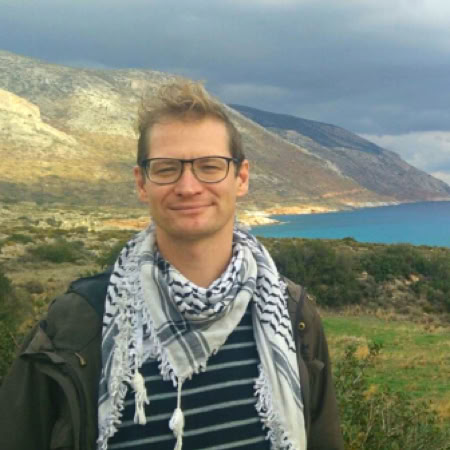
Diederik Strubbe is a biogeographer at INBO (Flemish Research Institute for Nature and Forest), specializing in research that informs invasive species management and policy. His work investigates how non-native species adapt to new environments and their potential impacts on native ecosystems. By combining observational studies, experiments, and niche modeling, he explores factors that influence invasion success and the reliability of risk forecasts. His research also examines how species might respond to climate-driven temperature changes, with a focus on ecophysiological and thermal tolerance mechanisms, supporting both invasive species management and conservation of vulnerable native species.
I am a movement ecologist, with particular interests in individual variation and its contribution to overall population maintenance, stability and adaptation to change. I gained my PhD from the University of York, UK, in 2019, which looked at individual variation in movement behaviour among breeding adult nightjars in the UK, and analysed their movement according to a number of environmental variables to assess their adaptability to change.
Following this, I went on to my first postdoc at the University of Hull, UK, becoming the UK ‘Motus’ tracking network coordinator, seeking to expand its development. Subsequently I moved on to a second postdoc at the University of the Highlands and Islands in Scotland, where I worked on seabirds and environmental impact assessments.
Now I am a Doctoral Assistant at Gent University, working across many projects but all focusing on avian movement, individual variation, learning and cognition. I also still work on the UK Motus network, encouraging expansion and providing training on tagging projects and help with funding.
My PhD research explores the cost of learning in birds, focusing on how juveniles acquire skills, crucial to survival, like foraging and navigating. By examining factors such as social context, cognitive ability, and early-life conditions, I aim to uncover how these costs shape behaviour and influence survival outcomes.
In my PhD I am investigating how early-life social environments shape the development of behaviour and cognition in birds, with a focus on inhibitory control and learning. I am also passionate about science communication, both within the academic community and through public outreach, and have a strong interest in animal welfare research.
My name is Wen, and I am a PhD student specializing in neuroscience and neurobiology. My research focuses on the gene expression of neurotransmitter receptors related to cognitive behaviors in quails and chickens. I also study the relationship between egg yolk and brain development in gulls.
My PhD research focuses on understanding how birds respond to the challenges posed by urbanisation, with an emphasis on the earliest stages of avian life, including embryonic development within the egg and post-hatching chick development. Specifically, I investigate the impacts of urban-related stressors—such as rooftop nesting, altered diets, and maternal stress—on reproductive success.

My PhD research explores response inhibition (RI) in birds, focusing on how they stop or cancel actions that are no-longer relevant, inappropriate, or overly risky. RI is essential for flexible and adaptive behavior, like avoiding predators or optimizing foraging strategies. By examining the (neuro)cognitive mechanisms underlying RI in complex, real-life environments, I aim to link neural, cognitive, behavioral and ecological levels of analysis, contributing to a more comprehensive understanding of animal behavior.
A key question in ecology is how species adjust their physiology to cope with different environmental conditions, as a better understanding of the underlying processes may allow ecologists to better predict how organisms will respond to changes in their environment. This is particularly important for endotherms, which must maintain their core body temperature within a narrow range. While endothermy allows animals to remain active across a range of temperatures, it comes with high energetic costs and physiological demands. For example, birds, due to their small size and primarily diurnal habits, are particularly vulnerable to the effects of climate change. As temperature extremes continue to rise, many bird species are being pushed beyond their thermoneutral zone (TNZ) more frequently than ever before.
In this context, my research focuses on the ecophysiological adaptations of passerine birds. By integrating laboratory respirometry, field studies, and spatially explicit geospatial modeling, I assess how both native and invasive bird species respond to environmental changes. The overall aim is to improve our understanding of how bird species cope with temperature changes, to better predict the invasion success of introduced species, and to assess how native species are likely to respond to temperature changes caused by global climate change.
ResearchGate: https://www.researchgate.net/profile/Cesare-Pacioni
Google Scholar: https://scholar.google.com/citations?user=PBFBLRcAAAAJ&hl=nl&oi=ao
With the world’s biodiversity in crisis, understanding how biodiversity influences ecosystem functioning and disease regulation has become a major focus of research. Particularly, the relationship between biodiversity and disease, and whether more diverse ecosystems can help protect humans and wildlife from pathogens, is attracting increasing attention. While much research has focused on community-level effects, individual-based pathways—such as stress-induced susceptibility—are becoming recognized as key factors in understanding these relationships.
Therefore, my PhD research focuses on understanding how forest structural complexity influences body condition and stress-mediated host-pathogen dynamics in birds. My work involves a combination of extensive field observations in forests across Belgium and detailed laboratory experiments on parasites and zoonotic agents, such as ticks and the bacterium Borrelia burgdorferi sl. Using advanced statistical and mechanistic modeling, we aim to generalize our findings beyond individual cases, providing new insights into the links between biodiversity, forest health, and pathogen transmission. By adopting an individual-based approach, we move beyond community-level analyses to uncover the fine-scale interactions that shape these vital ecological relationships. My PhD is part of the FORESTER project, a collaborative effort between the Faculty of Science, Bioscience Engineering, and Veterinary Medicine.
Research Journey
I started my scientific education at the Karl Franzens University in Graz, Austria with a Bachelor degree in Ethology followed by a degree in Behaviour, Neuro and Cognition from the University of Vienna, Austria. During this time I developed a keen interest in animal behaviour and cognition, especially social cognition and individual differences. In 2016, I moved to Sydney, Australia, to pursue a PhD studying the link between cognition and sociality across lizard species with varying degrees of sociability. While I was using the comparative approach during my PhD to study the evolution of cognition in lizards, I changed to understand how intra-specific variation in sociality might influence the expression of behaviour and cognition in lizards during my PostDoc at the University of Bern, Switzerland. During my time in Bern, I was able to also pursue my interest in linking animal behaviour and cognition to welfare in lizards. Now, at the University of Gent, I focus on applied research linking early-life experiences to the development of behaviour and cognition to improve welfare in chicken.
Research Interests
My research interests focus on animal cognition and behaviour. I am fascinated by how animals learn, individually and socially, and how the acquired information can help them to cope with the challenges of everyday life. In particular, I am interested in cognitive flexibility and executive function. Recently my research focus has broadened towards cognitive ecology including questions such as how sociality influences learning ability, how parental care affects offspring behavioural and cognitive phenotype, how the sexes learn in different context and how a species ecology shapes its cognitive ability. I am most excited about the comparative approach to find out how species differ in their cognition and how cognitive abilities have evolved in different taxa. In this context I am very interested in individual differences and how these might reflect necessary variation to cope with different challenges that might arise within an individuals’ lifetime but also across generations. I am also interested in how we can use both behaviour and cognitive ability to develop and improve animal welfare and conservation measures.
Also, here is the link to my website: https://birgitszabo.wixsite.com/cogsciresearch
I’m Nathan Audenaert, the animal caretaker at the VOC in Oostende with a bachelor’s degree in agro- and biotechnology, specializing in animal care. In my role, I’m responsible for the daily care, well-being, and health monitoring of the animals, ensuring they have optimal living conditions. I combine my academic background with practical experience to contribute to sustainable animal care practices at EcoBird.

An Martel is a veterinarian and PhD from Ghent University, Belgium. She is a professor in wildlife population health and co-PI of both ECoBird and the Wildlife Health Ghent at the Faculty of Veterinary Medicine, Ghent University. Besides, she is diplomate of the European College of Zoological Medicine (Wildlife Population Health).
Luc Lens (PI & co-founder of ECoBird).
I am a behavioural ecologist whose scientific journey began in southeast Kenya, where I launched a long-term ornithological research program in 1994 while based in Nairobi. When joining Ghent University in 2002, I set up the Avian Ecology and Evolution lab, reviving the university’s rich ornithological tradition which dates back to the 1960s but was gradually lost. Within the new interdisciplinary framework of ECoBird, we continue to uncover new insights into the remarkable lives of birds, blending fascination with cutting-edge science.
Frederick Verbruggen (PI & co-founder of ECoBird).
With a background in cognitive psychology (and a touch of neuroscience), my academic journey has taken me from fellowships in the US and Wales to a professorship in England, before finally returning to Ghent in 2017—where it all began. Since my return, I’ve shifted my research focus from human cognition to avian cognition and behavior, merging professional expertise with a personal fascination for birds. This interdisciplinary exploration has also led to the creation of ECoBird. Feel free to explore this website to learn more about what we’re doing!